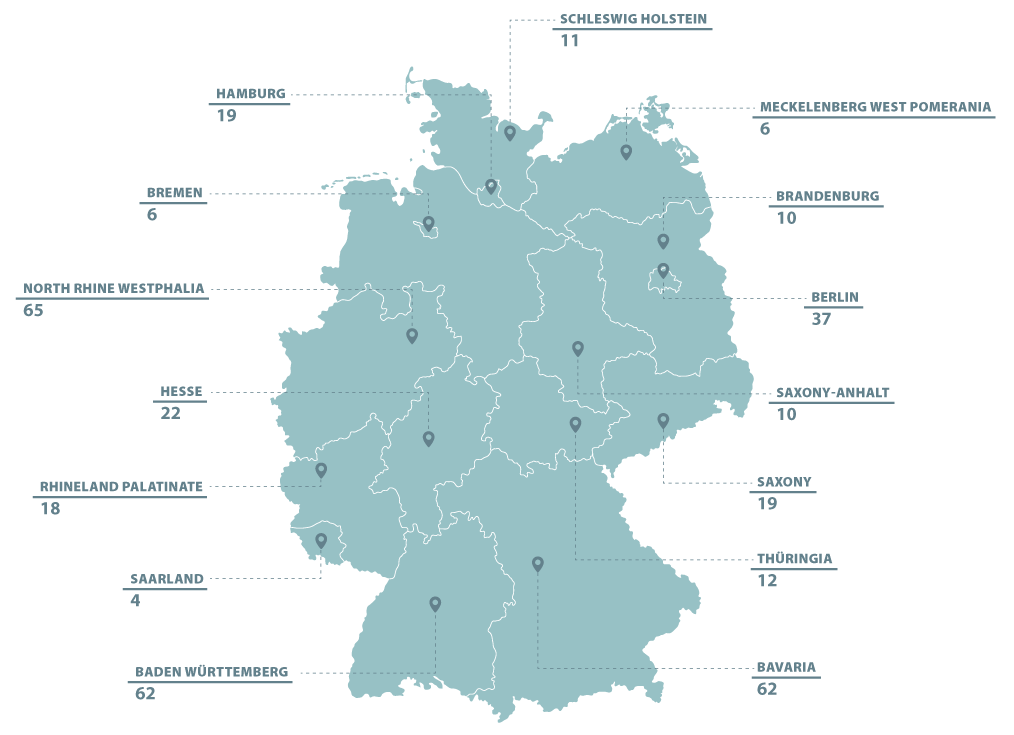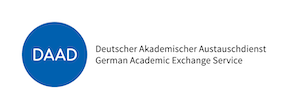Why Study Abroad in Germany?
Nestled in the heart of the European continent, Germany has long attracted students with world-class education, rich cultural heritage, and a vibrant economy. If you are considering where to study abroad, Germany may be an excellent destination for you: you can study any subject (including excellent opportunities for students in STEM fields and even programs entirely in English) at universities in both large cities and smaller communities. You can learn the German language, experience daily life, and come back from your study abroad experience with a wider worldview. Best of all, degrees are internationally recognized and since German universities don’t charge tuition fees, you won’t break your bank. Scroll to learn more about studying abroad in Germany and how the German Academic Exchange Service (DAAD) can help you finance your stay.
Universities in Germany

Learn About Studying in Germany
All About Studying in Germany
Learn why Germany is a great study abroad destination, plus see enrollment options to find your perfect undergrad or postgrad study abroad opportunity.
Learn More →Typical Cost to Study in Germany
Check out the typical costs for studying abroad in Germany, including program costs, accommodation, and the cost of living in various parts of Germany.
Learn More →Where to Study in Germany
Germany has fantastic study abroad options in cities and towns throughout the country. Learn more about some of the top cities to study abroad in.
Learn More →Don’t Speak German?
Learn about how you can study abroad in Germany -- even if you don’t speak German. Read tips on studying abroad in Germany in English.
Learn More →Know Before You Go
Get tips from a fellow student on what to know before you study abroad in Germany, and tips for adjusting to life abroad, to make it an unforgettable experience.
Learn More →Enjoy German Cuisine
Germany has distinct and delicious food and drink you can sample while studying abroad throughout the country. Learn more about the top must-try dishes.
Learn More →Frequently Asked Questions
-
How can I study in Germany for free?
Germany welcomes students from across the world to study at public universities and not pay any tuition fees (except the state of Baden-Wuerttemberg charges 1500 EUR per semester). If you are from outside the EU, you will be required to get a residence permit before moving to Germany to study. The non-commercialized approach to education in Germany has broad public support, and the economic benefits from international students coming to Germany to pursue higher education far exceed the costs. Of course, there are costs above and beyond tuition that students must cover, like room, board, and transportation expenses. Additionally, students will have to cover admin charges every semester, but this will be less than 500 USD and it does include a public transportation pass for the region and many student discounts.
Related Content -
What does DAAD stand for?
The acronym DAAD stands for Deutscher Akademischer Austauschdienst, which translates in English to the German Academic Exchange Service. DAAD is a publicly funded institution representing 242 German Colleges and Universities. They offer merit-based grants for study, internships or research at accredited Germany Universities and research institutions.
-
Who can apply for a DAAD scholarship?
DAAD offers funding on all academic levels in all fields. For most funding, German is not a requirement. Unlike many other funding opportunities, DAAD does not require US citizenship when applying for funding via the DAAD USA offices. All full-time students with at least sophomore standing, or recent graduates, are eligible to apply. To determine your eligibility, visit the official DAAD scholarship pages with details of the award, requirements and information on how to apply.
-
How hard is it to get a DAAD scholarship?
The German Academic Exchange Service (DAAD) is a merit-based funding organization. There is a vast amount of funding on the various academic levels and the number of applicants varies from funding to funding. For both national and international students who meet the requirements, getting a DAAD scholarship is surprisingly doable. The hard work comes from your undergraduate studies and experience in the field. That said, it takes dedication and preparation to receive any scholarship, and DAAD is no exception. Do your research, put in the work, and apply for the DAAD scholarship as soon as you're eligible. You never know what might come of it.
-
Can I get a DAAD scholarship without work experience?
Work experience is not required for any DAAD funding. However, research experience is a big plus for the Research Internship in Science and Engineering (RISE) or the Research Grant.
-
What are the requirements for DAAD scholarships?
Requirements for DAAD funding vary, but the minimum requirement for all is sophomore standing. For the Study Scholarships – Master Studies for All Academic Disciplines to complete a 2-year master’s in Germany, students in the senior year of college may apply, and acceptance to a German university is not a requirement. For this scholarship recent college graduates are eligible to apply up to 6 years after graduation. Depending on the scholarship, grant or internship, German skills and research experience may be required. You can find detailed information on the terms of award, eligibility and how to apply on each funding page.
-
What are the requirements to apply to a German university?
International students with a bachelor's degree are eligible to apply for a master’s or another bachelor’s in a different field. Most PhD programs require a master’s; unlike at US universities, students need to apply and finish each degree program separately to be eligible for the next academic level. Changing disciplines from your undergraduate to your graduate degree is not the norm in Germany.
-
How easy is it to make friends with locals while studying in Germany?
Depending on the length of your academic program in Germany, you may be able to make a lot of German friends. Make sure you check student groups and sport opportunities on campus, or offer language tutoring. You can also see if you can volunteer in your host city.
-
Can I have a job while I’m studying in Germany?
It depends on your nationality, but most students can work limited amounts while studying in Germany. Check with the International Office at your university to be sure, and visit Study in Germany for more information.
-
Do I need a visa to study in Germany, and how hard is it to get?
Most international students will need a visa to study in Germany and possibly a residence permit too. Visit the website for your nearest German Consulate or Embassy to learn more about specific requirements for your country.
Related Content -
What do I need to know about student housing while I study in Germany?
For most programs, you will need to arrange your own student accommodation. With support from your German university, you should be able to find a room to rent either close to campus or in the host city. DAAD has an accommodation database for you to find a place to stay short or long-term.
-
What are my chances for finding work in Germany once I’ve finished my studies?
There are opportunities for both work placements and post-graduate employment in Germany and the rest of Europe. Consult the DAAD website to learn more about the requirements and your chances of finding work after studying in Germany.
-
What resources should I use to improve my German skills before studying in Germany?
Whether you are fluent in German or just starting to learn the language, you can study in Germany. The DAAD website offers resources to help you improve your German language skills before arriving in Germany.
Related Content -
Are there scholarships to study in Germany?
There are a variety of scholarships available to international students who study in Germany. The DAAD website has a great deal of information about scholarships.
